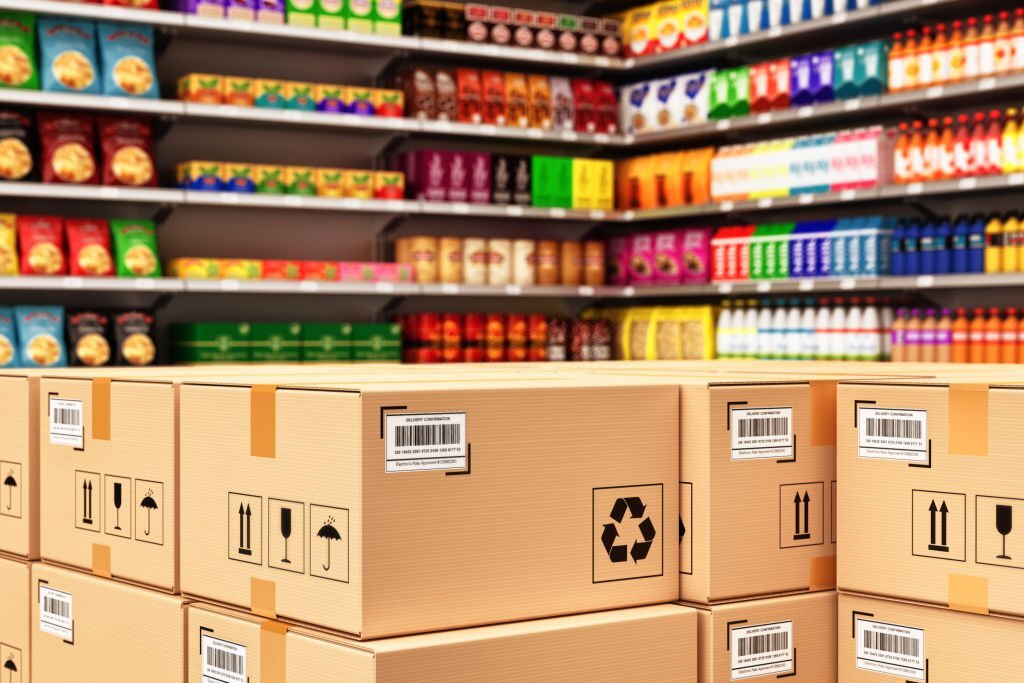The complexity of the Consumer-Packaged Goods (CPG) industry has increased significantly in the last few years, along with data intricacies and consumer insights. Navigating competition in the CPG industry today is becoming more challenging, and companies must utilize advanced data analytics to generate actionable insights that can offer competitive differentiation.
Here are three ways of effectively leveraging CPG data analytics to gain a competitive edge.
Delivering Personalized Promotions
Consumer packaged goods (CPG) companies previously had a simple, one-size-fits-all approach to their products and customers without much personalization or relationship building. However, this method is now risky when small innovative companies use direct-to-consumer marketing and personalized sales techniques.

To keep up, large CPG companies are now using data analytics and consumer insights to gain a better understanding of their customers. These insights help them to see the bigger picture of their customers’ needs and make customer-centric decisions across all categories, products, and segments. It involves engaging customers through their preferred channels, meeting their current needs, and building brand loyalty.
To keep up, large CPG companies are now using data analytics and consumer insights to gain a better understanding of their customers. These insights help them to see the bigger picture of their customers’ needs and make customer-centric decisions across all categories, products, and segments. It involves engaging customers through their preferred channels, meeting their current needs, and building brand loyalty.
By analyzing in-store promotions by channel, rep, offer type, etc., consumer goods companies can go as deep as which offer works for which category of stores or what age group of consumers. CPG companies can leverage enterprise-grade reporting and visualization solution that integrates with their Distribution Management System (DMS), Sales Force Automation (SFA) app, ERP, and Trade Promotion Management (TPM) solution.

Predicting Consumer Behaviour
As the world constantly emerges, it is critical to predicting your customer-of-the-future for CPG companies to stay competitive. Consumer Goods firms should analyze past data and patterns to predict future trends.
By collecting market data, including historical trends, economic variables, and the consumer price index, CPG companies can gain a deep understanding of the market and consumer behavior. In addition, they should analyze other CPG market variables, such as consumer sentiment, social listening, search trends, and category-specific data.
At Ivy, we specialize in CPG Route to Market analytics, and many of our customers use Ivy Insights, our in-house data analytics solution that integrates with any tool seamlessly. Ivy Insights provides digestible and actionable data intelligence in real time. Many of our customers have customized the solution per their business needs to address questions that their leaders or sales reps may face each day.
- Which retailer channels will work best for a promotion?
- How much did we spend on discounts last quarter, and what is the ROI?
- What more can I sell to this retailer?
- How much quantity of an SKU is to be sold to this retailer?
Agile Decision-making
CPG companies had to make quick decisions during the pandemic to respond to changing consumer needs. Those that adopt this agile approach to decision-making will have an advantage in the future. Therefore, data analytics is becoming critical for these companies, allowing easier access to consumer insights needed for effective decision-making. With access to valuable insights, CPG companies can avoid wasting time and money searching for knowledge and make frequent and agile decisions on a large scale. Regular delivery of recommendations is crucial in this process.
How can a data analytics solution help?
Consumer goods companies must understand customers’ behavior and identify growth opportunities to stay competitive. However, many companies struggle to keep up with the fast pace of the market because they can’t analyze CPG data effectively. Investing in a data analytics solution can help CPG companies quickly implement data-driven strategies and gain a competitive advantage. Here is how a data analytics platform can help:
1. A single source of truth – A data analytics solution can lead and harmonize business teams to address changing customer needs. By combining knowledge and market data sources, your teams can efficiently generate insights to provide high-quality recommendations and make informed decisions quickly.
2. Data-driven Decisions – A fully integrated data analytics solution facilitates the delivery of targeted and filtered insights directly to local teams and business units, allowing individuals with varying levels of expertise to make well-informed decisions.
3. Empower your teams – Enable your business teams to access insights through self-service tools by allowing them to obtain the information they require at the right time. By utilizing AI-powered tools, getting insights in real-time is effortless for business users, and your teams no longer have to miss out on opportunities.
As discussed above, Ivy Insights offers consumer goods companies the ability to receive actionable intelligence with real-time data analysis. It comes with pre-built reports and dashboards specially curated for consumer goods route to market. You can also customize the reports and dashboards per your business needs to create a unified analytics solution.
Book a demo to see how our insights solution works.